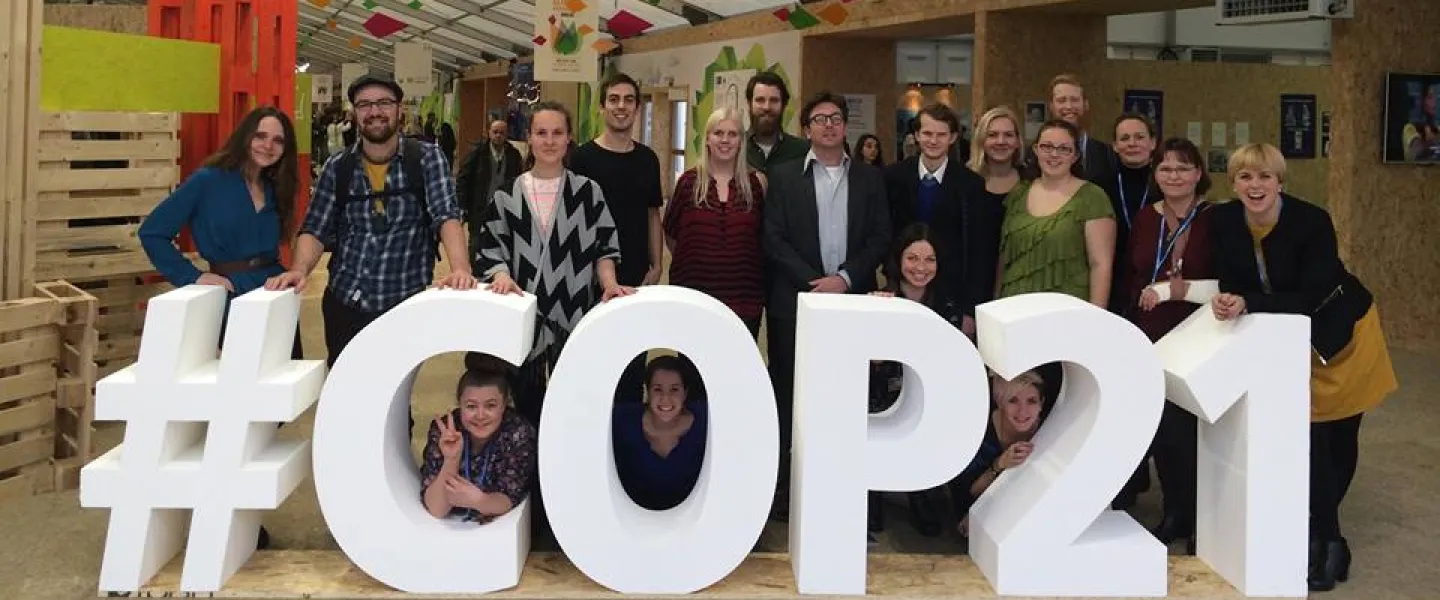
A group of nineteen master students in Environment and Natural Resources participated at the 2015 United Nations Climate Change Conference (COP21) in Paris last week, where the world's nations are working on a general and binding agreement on the reduction of greenhouse gas emissions. One of the students is working on a final thesis connected to the conference; cartoons published in popular online media in countries that constitute top 10 emitters.
The participation of the master students in Environment and Natural Resources is part of a course that was offered this autumn semester. The course covers the United Nations Framework – Convention on Climate Change, signed at the United Nations at the 1992 United Nations Conference on Environment and Development in Rio de Janeiro and the work that took place prior to the conference in Paris.
The 2015 United Nations Climate Change Conference, COP21, is held from 30 November to 11 December in Paris and the aim is to achieve a legally binding and universal climate agreement to keep global warming below 2°C. The conference is considered one of the world's leading forums on climate change; especially since inaction to counteract global warming will have dire consequences later this century for our glaciers, water budgets and settlements by the sea.
Most of the students participate in the conference the first of the two week, but very few participate in both weeks. „We had the opportunity to observe the negotiations between the 195 member states that have a representative at the conference. We listened to lectures and participated in seminars in open areas of the conference. Two members of the group had access to the so-called Blue Zone, the inner sanctum of COP21, where the countries’ high level representatives are drafting the historic agreement. We discussed the progress of the conference in our daily group meetings,” says Þorgerður Anna Björnsdóttir, Chairperson of GAIA, the organisation of students of the Environment and Natural Resources programme at the University of Iceland.
Exciting and educational days
The students will undoubtedly benefit from the conference in Paris. Björnsdóttir points out that one of the major problems in climate issues lies in that the will of states to reduce the emission of greenhouse gases will not suffice according to the calculations of the science community where the goal is to avoid more than 2°C warming of the atmosphere. “There are more factors to consider; such as a certain awareness among the general public on the importance of climate issues and the severity of inaction. The pledges in place still lead to 3 – 3,5 °C increase in temperature which is way above the goal,” she says and adds that it will be exciting to witness whether a binding agreement will be reached at the conference in Paris and what ideas will come from the discussions that reach even further than the negotiations. The conference unites in one place a great number of people who are fighting for progress in the field of climate issue.
The general public can follow the progress on the conference website.